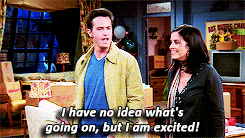Books are long
Books are hundreds of pages long. They're hard to keep track of in my head, even if I'm just reading them! I struggle every day with
the structure and organization of my story. It’s hard to remember what happened
in chapter 12 to such-and-such character in the conservatory with the
candlestick. And why they need to be in the ballroom in chapter 13, dancing
with the wrench. Wait… I may have confused my plotline with the classic board game Clue.
 |
| It's like this. |
There are a lot of words
Google is giving me conflicting results on how many words
there are in the English language, but it looks like it’s almost 200,000. That’s
a lot of words to choose from when writing. What if something isn’t just great? What if it's exceptional or splendid or fantastic or extraordinary?! How am I supposed to choose
the right degree of awesome? Also, it occurs to me that the word count goal for
my novel is 75,000. That’s less than half of the words that are available to choose
from. Le sigh.
Anything can happen
Literally. I could have my character jump off a cliff, find
a hidden world in a tree truck or meet Doctor Who (well, that would probably be
against some kind of copyright law). But seriously, I can make anything happen
while writing, within reason. And sometime outside reason. That gives me an
extraordinary number of potential plot fails. So finding the “right” plot for
my characters? Not easy.
So, writing is hard. But, I do it anyway.
Because I like making things up. I like creating worlds that are my
own, with my own form of fantasy and insanity. I like my characters, who
sometimes do what I say and occasionally act on their own (you’d think that’d
be frightening but it’s actually kind of cool). I enjoy frolicking in the
fields of my own imagination.
So even though books are long, even though there are thousands
of words to choose from and even though there are an endless number of beginnings, middles
and ends, I write. It’s difficult, but I love it anyway. Or maybe I love it
because it’s difficult.












